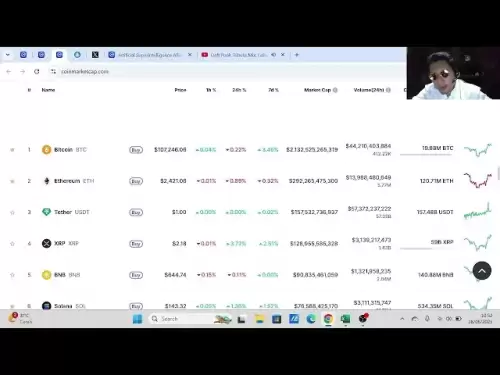-
 Bitcoin
Bitcoin $107,490.3555
0.12% -
 Ethereum
Ethereum $2,429.0242
-0.68% -
 Tether USDt
Tether USDt $1.0003
-0.01% -
 XRP
XRP $2.1909
4.62% -
 BNB
BNB $647.0228
0.21% -
 Solana
Solana $145.4573
2.77% -
 USDC
USDC $0.9998
0.00% -
 TRON
TRON $0.2743
1.11% -
 Dogecoin
Dogecoin $0.1629
0.78% -
 Cardano
Cardano $0.5639
1.17% -
 Hyperliquid
Hyperliquid $36.8090
0.45% -
 Bitcoin Cash
Bitcoin Cash $498.6939
-0.90% -
 Sui
Sui $2.7064
2.60% -
 Chainlink
Chainlink $13.1161
0.01% -
 UNUS SED LEO
UNUS SED LEO $9.0785
0.73% -
 Stellar
Stellar $0.2383
1.62% -
 Avalanche
Avalanche $17.6030
0.75% -
 Toncoin
Toncoin $2.8449
0.32% -
 Shiba Inu
Shiba Inu $0.0...01137
1.06% -
 Litecoin
Litecoin $85.4672
0.49% -
 Hedera
Hedera $0.1473
2.72% -
 Monero
Monero $314.3940
1.03% -
 Bitget Token
Bitget Token $4.7116
0.51% -
 Dai
Dai $1.0001
0.02% -
 Polkadot
Polkadot $3.3462
1.11% -
 Ethena USDe
Ethena USDe $1.0004
0.04% -
 Uniswap
Uniswap $6.9306
0.38% -
 Pi
Pi $0.5343
-2.80% -
 Pepe
Pepe $0.0...09292
0.33% -
 Aave
Aave $255.4154
-0.75%
The difference between Deepcoin options and contracts
Deepcoin offers both options and contracts, providing traders with versatile tools to navigate cryptocurrency price movements, each with its distinct advantages and risks.
Nov 26, 2024 at 01:54 am
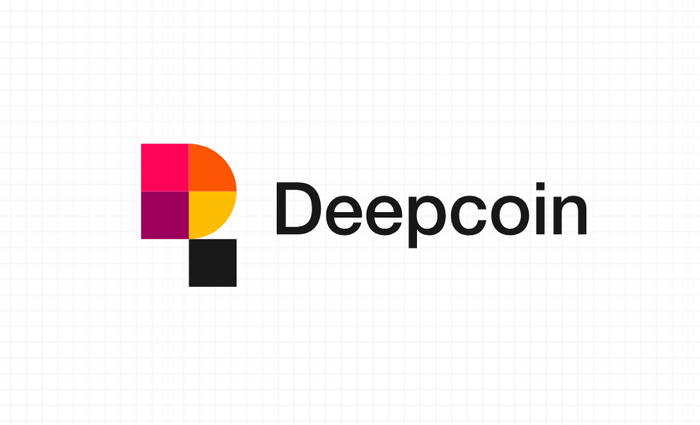
Deepcoin Options and Contracts: A Comprehensive Guide
Introduction
Deepcoin is a leading cryptocurrency exchange that offers both options and contracts to its users. These two financial instruments provide different ways to profit from the price movements of cryptocurrencies, and understanding their key differences is crucial for successful trading.
Understanding Deepcoin Options
- Definition: Deepcoin options grant the holder the right, but not the obligation, to buy (call option) or sell (put option) an underlying asset (usually a cryptocurrency) at a predetermined price (strike price) on or before a specified date (expiration date).
Key Features:
- Buyer's Perspective: The buyer of an option has the right to exercise it anytime before expiration, regardless of whether the underlying asset's price is favorable. However, the option contract itself has a premium paid to the seller.
- Seller's Perspective: The seller of an option is obligated to fulfill the contract if the buyer exercises it. The premium received compensates the seller for this potential liability.
Types of Options: Deepcoin offers two types of options:
- American Options: Can be exercised at any time before expiration.
- European Options: Can only be exercised on the expiration date.
Terminology:
- Call Option: Gives the holder the right to buy the underlying asset.
- Put Option: Gives the holder the right to sell the underlying asset.
- Strike Price: The predetermined price at which the option can be exercised.
- Premium: The price paid to acquire an option contract.
Understanding Deepcoin Contracts
- Definition: Deepcoin contracts are agreements between two parties to buy or sell an underlying asset (usually a cryptocurrency) at a fixed price on a future date.
Key Features:
- Mandatory Execution: Unlike options, contracts are mandatory. If the terms of the contract are met, the asset must be bought or sold on the specified date.
- No Premium: Contracts do not involve a premium, as both parties agree on the purchase or sale price in advance.
Two Types: There are two main types of contracts:
- Perpetual Contract: A continuously open contract with no set expiration date, allowing traders to maintain long or short positions indefinitely.
- Fixed Contract: A contract with a specified expiration date.
Terminology:
- Long Position: Betting on the price of the underlying asset to rise.
- Short Position: Betting on the price of the underlying asset to fall.
- Leverage: Contracts allow for leveraging, where traders can borrow funds to increase their potential profits but also their risk.
Key Differences Between Deepcoin Options and Contracts
- Right vs. Obligation: Options provide the holder with a right to buy or sell, while contracts impose an obligation to buy or sell.
- Premium vs. No Premium: Options involve a premium paid to acquire the contract, while contracts do not.
- Flexibility vs. Certainty: Options offer more flexibility as they can be exercised at any time before expiration, whereas contracts are mandatory and must be fulfilled on the agreed-upon date.
- Risk vs. Reward: Options have limited risk, as the buyer's loss is capped at the premium paid. Contracts have potentially unlimited risk, as the losing party may be obligated to cover the difference between the contract price and the prevailing market price at expiration.
- Suitability: Options are suitable for traders seeking flexibility and limited risk, while contracts are better suited for experienced traders seeking leverage and the potential for higher returns.
Disclaimer:info@kdj.com
The information provided is not trading advice. kdj.com does not assume any responsibility for any investments made based on the information provided in this article. Cryptocurrencies are highly volatile and it is highly recommended that you invest with caution after thorough research!
If you believe that the content used on this website infringes your copyright, please contact us immediately (info@kdj.com) and we will delete it promptly.
- Undervalued Crypto Gems: Time to Buy Now?
- 2025-06-28 14:30:12
- Stablecoins, Risk Reward, and Regulation: Navigating the Crypto Minefield
- 2025-06-28 14:30:12
- Binance Coin (BNB): Whale Moves, Exchange Activity, and the Path to $900?
- 2025-06-28 14:50:13
- XLM, Stellar, Surge: What's Driving the Buzz?
- 2025-06-28 14:55:12
- DAO Governance at a Crossroads: Voter Apathy, Treasury Diversification, and the Quest for Sustainability
- 2025-06-28 14:58:49
- Tokenomics, Blockchain, and Digital Economies: Key Trends and Insights
- 2025-06-28 14:40:12
Related knowledge
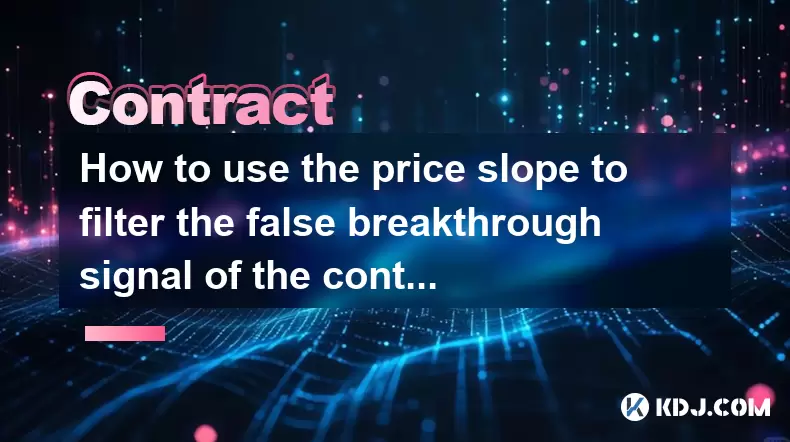
How to use the price slope to filter the false breakthrough signal of the contract?
Jun 20,2025 at 06:56pm
Understanding the Concept of Price Slope in Contract TradingIn contract trading, especially within cryptocurrency derivatives markets, price slope refers to the rate at which the price changes over a specific time period. It helps traders assess the strength and sustainability of a trend. A steep slope may indicate strong momentum, while a shallow slope...
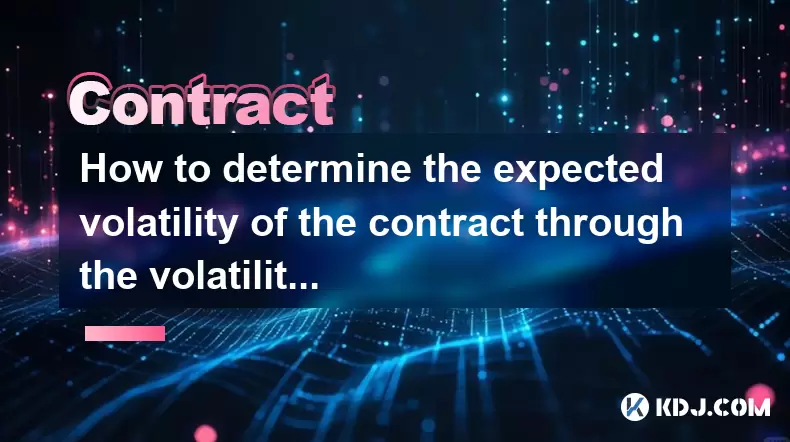
How to determine the expected volatility of the contract through the volatility cone?
Jun 19,2025 at 12:28pm
Understanding the Basics of Volatility in Cryptocurrency ContractsIn the realm of cryptocurrency trading, volatility is a key metric that traders use to assess potential risk and reward. When dealing with futures contracts, understanding how volatile an asset might become over time is crucial for position sizing, risk management, and strategy developmen...
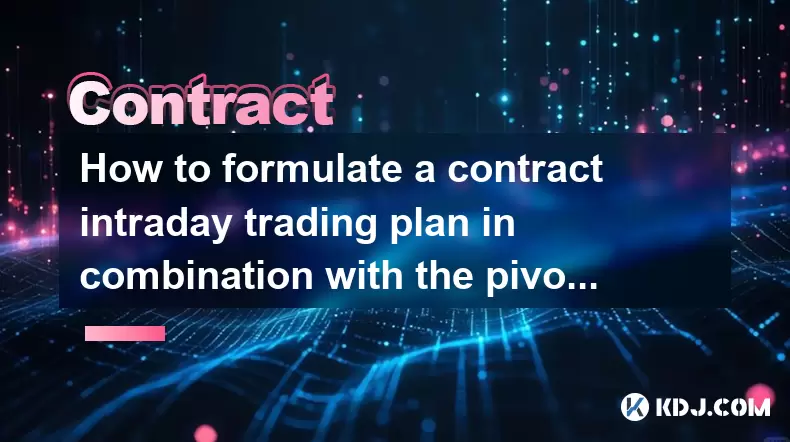
How to formulate a contract intraday trading plan in combination with the pivot point system?
Jun 21,2025 at 03:42pm
Understanding the Basics of Pivot Points in Cryptocurrency TradingPivot points are technical analysis tools used by traders to identify potential support and resistance levels. These levels are calculated using the previous day's high, low, and closing prices. In the context of cryptocurrency trading, where markets operate 24/7, pivot points help trader...
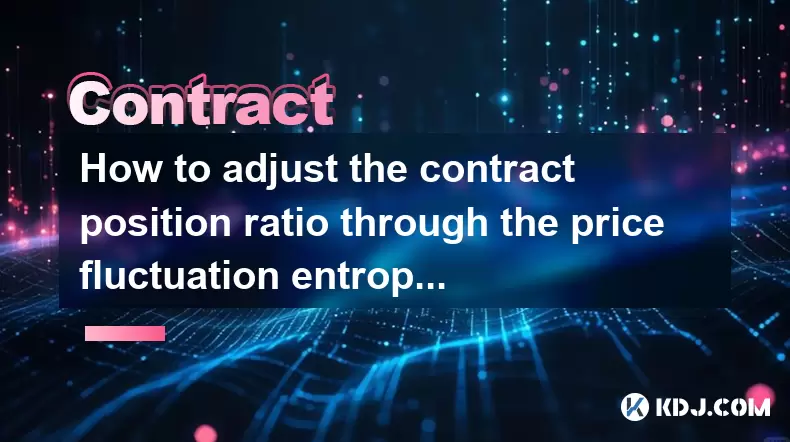
How to adjust the contract position ratio through the price fluctuation entropy?
Jun 22,2025 at 11:42am
Understanding Price Fluctuation Entropy in Cryptocurrency ContractsIn the world of cryptocurrency futures trading, price fluctuation entropy is a relatively new concept used to measure market volatility and uncertainty. It derives from information theory, where entropy refers to the degree of randomness or unpredictability in a system. In crypto contrac...
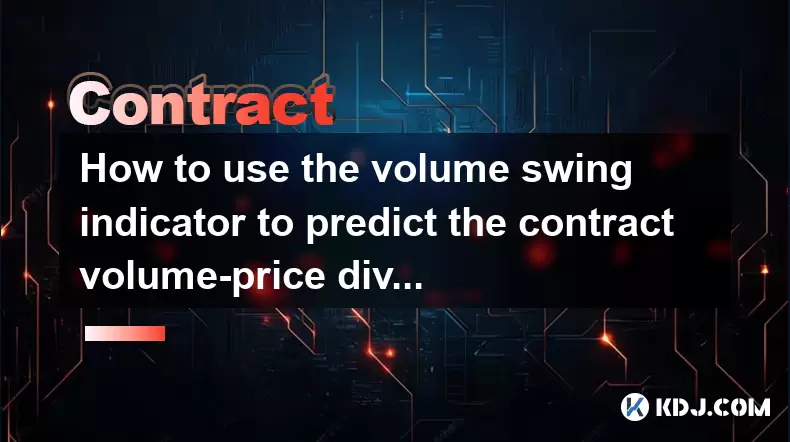
How to use the volume swing indicator to predict the contract volume-price divergence?
Jun 18,2025 at 11:42pm
Understanding the Volume Swing IndicatorThe volume swing indicator is a technical analysis tool used primarily in cryptocurrency trading to evaluate changes in volume over time. Unlike price-based indicators, this metric focuses solely on trading volume, which can provide early signals about potential market reversals or continuations. The key idea behi...
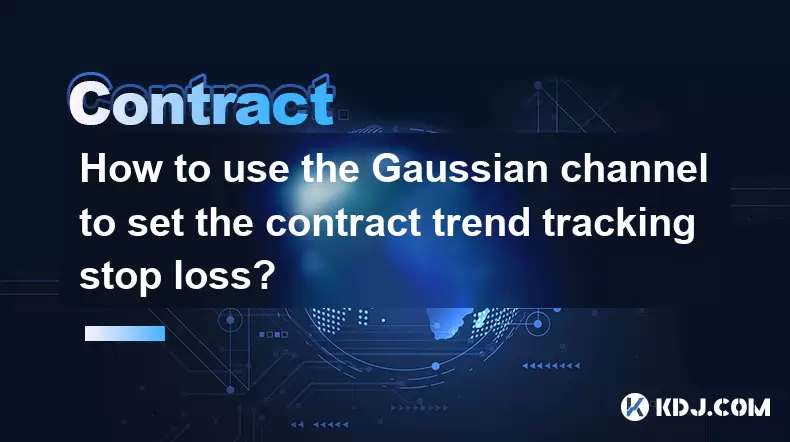
How to use the Gaussian channel to set the contract trend tracking stop loss?
Jun 18,2025 at 09:21pm
Understanding the Gaussian Channel in Cryptocurrency TradingThe Gaussian channel is a technical indicator used primarily in financial markets, including cryptocurrency trading, to identify trends and potential reversal points. It is based on statistical principles derived from the normal distribution, commonly known as the Gaussian distribution or bell ...

How to use the price slope to filter the false breakthrough signal of the contract?
Jun 20,2025 at 06:56pm
Understanding the Concept of Price Slope in Contract TradingIn contract trading, especially within cryptocurrency derivatives markets, price slope refers to the rate at which the price changes over a specific time period. It helps traders assess the strength and sustainability of a trend. A steep slope may indicate strong momentum, while a shallow slope...

How to determine the expected volatility of the contract through the volatility cone?
Jun 19,2025 at 12:28pm
Understanding the Basics of Volatility in Cryptocurrency ContractsIn the realm of cryptocurrency trading, volatility is a key metric that traders use to assess potential risk and reward. When dealing with futures contracts, understanding how volatile an asset might become over time is crucial for position sizing, risk management, and strategy developmen...

How to formulate a contract intraday trading plan in combination with the pivot point system?
Jun 21,2025 at 03:42pm
Understanding the Basics of Pivot Points in Cryptocurrency TradingPivot points are technical analysis tools used by traders to identify potential support and resistance levels. These levels are calculated using the previous day's high, low, and closing prices. In the context of cryptocurrency trading, where markets operate 24/7, pivot points help trader...

How to adjust the contract position ratio through the price fluctuation entropy?
Jun 22,2025 at 11:42am
Understanding Price Fluctuation Entropy in Cryptocurrency ContractsIn the world of cryptocurrency futures trading, price fluctuation entropy is a relatively new concept used to measure market volatility and uncertainty. It derives from information theory, where entropy refers to the degree of randomness or unpredictability in a system. In crypto contrac...

How to use the volume swing indicator to predict the contract volume-price divergence?
Jun 18,2025 at 11:42pm
Understanding the Volume Swing IndicatorThe volume swing indicator is a technical analysis tool used primarily in cryptocurrency trading to evaluate changes in volume over time. Unlike price-based indicators, this metric focuses solely on trading volume, which can provide early signals about potential market reversals or continuations. The key idea behi...

How to use the Gaussian channel to set the contract trend tracking stop loss?
Jun 18,2025 at 09:21pm
Understanding the Gaussian Channel in Cryptocurrency TradingThe Gaussian channel is a technical indicator used primarily in financial markets, including cryptocurrency trading, to identify trends and potential reversal points. It is based on statistical principles derived from the normal distribution, commonly known as the Gaussian distribution or bell ...
See all articles























